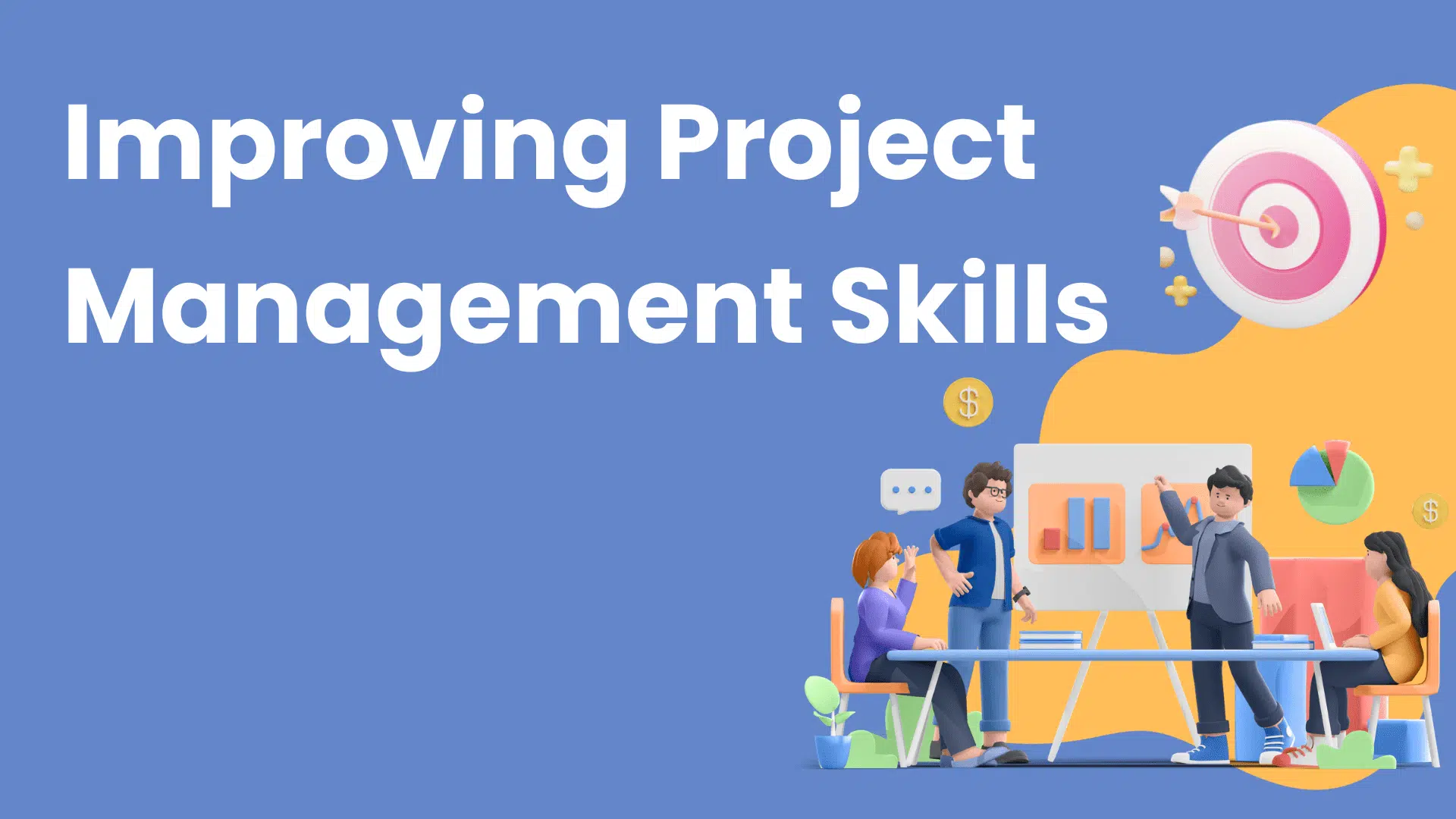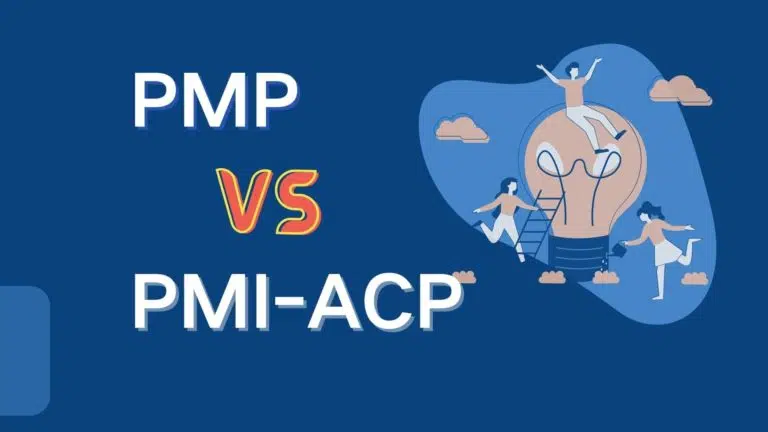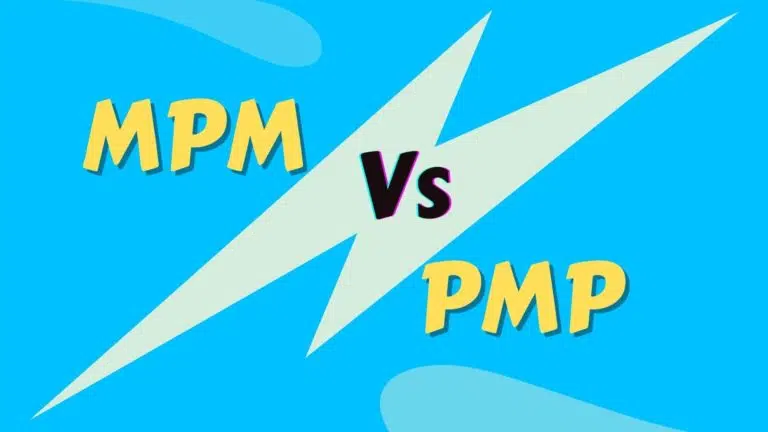Project managers help businesses achieve their objectives and allow them to reach their long-term goals. Project managers are in high demand in the organization looking for growth using new product development, improved products, processes or procedures, or marketing.
If you want to grow your career as a project manager, you must have certain project-management skills.
In this blog post, I will brief you on project-management skills and then teach you how to improve your project-management skills and stay ahead in this competitive environment.
Let’s first understand what project-management skills are.
What Are Project-Management Skills?
Project-management skills are qualities that are required to become an efficient project manager. Project management skills include soft and hard skills.
Soft skills are interpersonal or people skills and define the character of the project manager. Your interpersonal skills can make you a better collaborator, communicator, etc.
Hard skills are acquired through work experience, education, training, etc. Hard skills include coding, language proficiency, etc.
Soft Skills for Project Managers
The following are important soft skills for project managers:
- Adaptability
- Collaboration
- Communication
- Conflict Resolution
- Critical Thinking
- Decision-Making
- Delegation
- Leadership
- Organization
- Patience
- Teamwork
- Team Building
- Time Management
- Sense of Humor
Hard Skills for Project Managers
The following are important hard skills for project managers:
- Change Management
- Configuration Management
- Cost Management
- Hosting Meetings
- Planning and Forecasting
- Project-Management Frameworks
- Project-Management Tools
- Procurement Management
- Quality Management
- Risk Management
- Reading Charts
- Schedule Management
- Subject-Matter Expertise
- Task Management
- Tracking and Reporting
Importance of Project Management Skills
If you are already a project manager or you are interested in growing your career in project management, project management skills are vital for you to learn. These skills will help you manage your projects efficiently, and you will earn respect in the profession.
Project management skills are essential because they ensure efficient resource utilization, goal achievement, risk mitigation, time and cost control, quality assurance, and stakeholder communication. In today’s competitive business environment, these skills are the foundation upon which organizations build their capacity to execute projects successfully, adapt to change, and achieve strategic objectives.
According to Zip Recruiter, 93% of recruiters consider soft skills critical in hiring. The profession is growing, and it is expected that 88 million professionals will be working as project managers by 2027.
How to Improve Project Management Skills
To improve your project management, follow the following tips:
#1. Fill Your Knowledge Gaps
This is the most important project-management skill to improve. I am a PMP professional, and to become a PMP, I went through a process that included reading project management reference books and the PMBOK guide, as well as attending training.
While reading books, I realized that my knowledge gap was wide, and I needed to fill it. While filling my knowledge gaps, I learned many project management tools and techniques that aligned my knowledge.
This experience would not be possible without reading books and attending project management courses.
So, I recommend you read some good project management books and attend necessary training courses helpful in your field. This will make you an expert in your field.
#2. Attend Project Management Courses
If you lack hard project management skills, you should attend courses and read books that focus on your professional subject matter. For example, if you are a project manager for a software development company, you should attend courses on programming languages and software development processes. This will help improve your hard project management skills.
If you lack soft or interpersonal skills, then you must improve them. Project managers use soft skills more often than hard skills. Therefore, these skills will make you the best project manager.
Soft skills are built with your nature. These are hard to earn, but if you lack soft skills, you can improve yourself with training and practice. The course can include a communication course, leadership course, public speaking, etc.
While joining any course, ensure the instructor is renowned; if possible, ensure the course content is available to refer to later.
#3. Earn Your Project Management Certification
Certifications are a great way to elevate your project management abilities to the next level. I felt it myself. When I got my PMP and PMI-RMP certifications, my knowledge of project management processes and techniques was way above that of before attaining the certifications.
I learned many new processes, tools, techniques, and methodologies, all of which improved my work efficiency and skills.
There are many certifications available for project managers, including:
- PMP
- PMI-RMP
- PRINCE2
- CAPM
- PMI-ACP
You can join one or more courses from the above list and enhance your skills in project management.
#4. Join Your Local PM Communities
I learned a lot from my local PM community. I joined my local community for project management while preparing for the PMP certification and was interested in improving my knowledge and skills.
My local community used to organize seminars, project management topics, and real project case studies. I used to go there and participate in their sessions to learn from real experts from their experience.
You can also find and join local communities to learn and improve effective project management skills. Although joining some communities may cost money (e.g., membership dues and fees), the price will be worth it overall.
#5. Job Shadow Experts
This technique is useful if you are starting your career in project management or if you don’t have much professional experience. You can learn or improve your skills by job-shadowing expert project managers.
You can approach them and ask to work with them part-time or voluntarily if no paid full-time posts are available. This will provide you with real-life work experience, and you will learn a lot! This experience is priceless; no course or tutor can provide you with the knowledge that you will earn through job shadowing.
#6. Share Your Knowledge
If you are an expert or experienced project manager, you can improve your skills by sharing your knowledge with other professionals. By sharing knowledge, you can increase your network and earn respect as an authority in the profession.
You can share knowledge by giving presentations, streaming live webinars, publishing articles, books, videos, etc. To share knowledge, you must first learn a lot, which will, in turn, align your knowledge and fill any gaps.
#7. Learn Project Management Methodologies
In the early days of project management, project managers had only one project management methodology: traditional project management methodology (also known as “the waterfall method”). This methodology was useful when the requirements were fixed, and changes in the project scope were rare.
This methodology was not useful for IT and software projects where requirements are unclear at the beginning of the project, so new mythologies came into existence and are known as the Agile methodologies, a collection of many frameworks. Scrum, SAFe, Kanban, etc., are examples of popular agile frameworks.
You must know these methodologies and frameworks to succeed in project management.
I had experience with the waterfall method and did not use the agile methodologies, so I learned the agile frameworks. You should do the same.
#8. Build a Network of Project Management Professionals
Build a network of project management professionals and build your knowledge base from their experiences and lessons learned. Learning from experts’ experience can vastly improve your project management knowledge. You can join local project-management communities or chapters of project management organizations and societies to meet such experts.
Joining the membership of these societies may require you to pay a fee, but it is always worth joining. You will get access to experts, literature, meeting invitations, webinars, courses, etc.
#9. Learn to Use Project Management Tools
These days, all organizations use project-management tools; it is more efficient than manually managing tasks. Find out which project-management software is most popular in your area and get hands-on experience with it.
Apart from project-management software, you must also learn other software (e.g., Microsoft Office Suite). Microsoft Word and Excel are the most important. During my early days in project management, job interviewers often tested job candidates on their Microsoft Word and Excel skills.
Once, an interviewer asked my friend to take a printout using a copier machine.
Though, these days photocopying is common, and nobody asks for it, ensure you have medium to advanced skills in using Office suite.
#10. Ask for Feedback and Improve
Finding your shortcomings alone is nearly impossible, but your peers and friends can easily inform you about your issues. So, ask your peers about your shortcomings and how you can improve them.
Ensure that they give you honest and detailed feedback on the areas in which you must improve. Review the feedback and work on your problem areas to improve your project-management skills.
#11. Join a Membership of Professional Bodies
Before applying for my PMP exam, I became a PMI (Project Management Institute, USA) member. PMI is the most popular organization for project professionals. This membership provided me with a quarterly journal and monthly magazine. These journals and magazines were full of knowledge and helped me learn the latest project management tools and techniques.
You can also join the PMI and any other professional membership popular in your country. This will certainly help you enhance your skills in project management.
#12. Participate in Team-Building Activities
Participate in team building activities to connect with professionals and improve your soft project-management skills (e.g., collaboration, communication, leadership, public speaking, etc.).
If you are new to project management, find opportunities in your organization to participate in team-building sessions. Find extracurricular activities and help your organization to complete those events.
Effective Project Management Tips
The following tips will make you a more effective project manager:
- Get Stakeholders’ Buy-In: Ensure that your stakeholders are satisfied with the project’s progress and provide them with timely performance reports (as mentioned in the communication-management plan).
- Develop Ground Rules: Develop, implement, and ensure that your team members follow the ground rules. Following ground rules will minimize conflict and increase team morale.
- Solve Conflicts Privately: If any stakeholders have a conflict, solve it privately and collaboratively. Solving conflicts in public can demotivate team members and spread rumors, which can in turn, negatively affect the work environment.
- Appreciate Good Work: Occasionally appreciate your team members in public for their good performance to help motivate the entire team. If possible, you can reward them to motivate them further.
- Control Communication: Avoid taking verbal requests from clients. Always take requests in formal, written form and reply in the same format to avoid conflict and confusion at a later stage.
- Provide Support and Training: If a team member is not performing well or lacks skills, guide them to perform better and provide training to improve their skills as needed.
- Clarify Roles and Responsibilities: Unclear roles, responsibilities, and task assignments are some of the main causes of project conflict. Ensure your team understands their roles, responsibilities, and task assignments.
Conclusion
Project managers are in high demand, and the project management profession is competitive. Therefore, you must improve your project management skills to grow your career. Learning, volunteering, and giving back to the profession are the keys to improving your skills and finding success in project management.

I am Mohammad Fahad Usmani, B.E. PMP, PMI-RMP. I have been blogging on project management topics since 2011. To date, thousands of professionals have passed the PMP exam using my resources.







